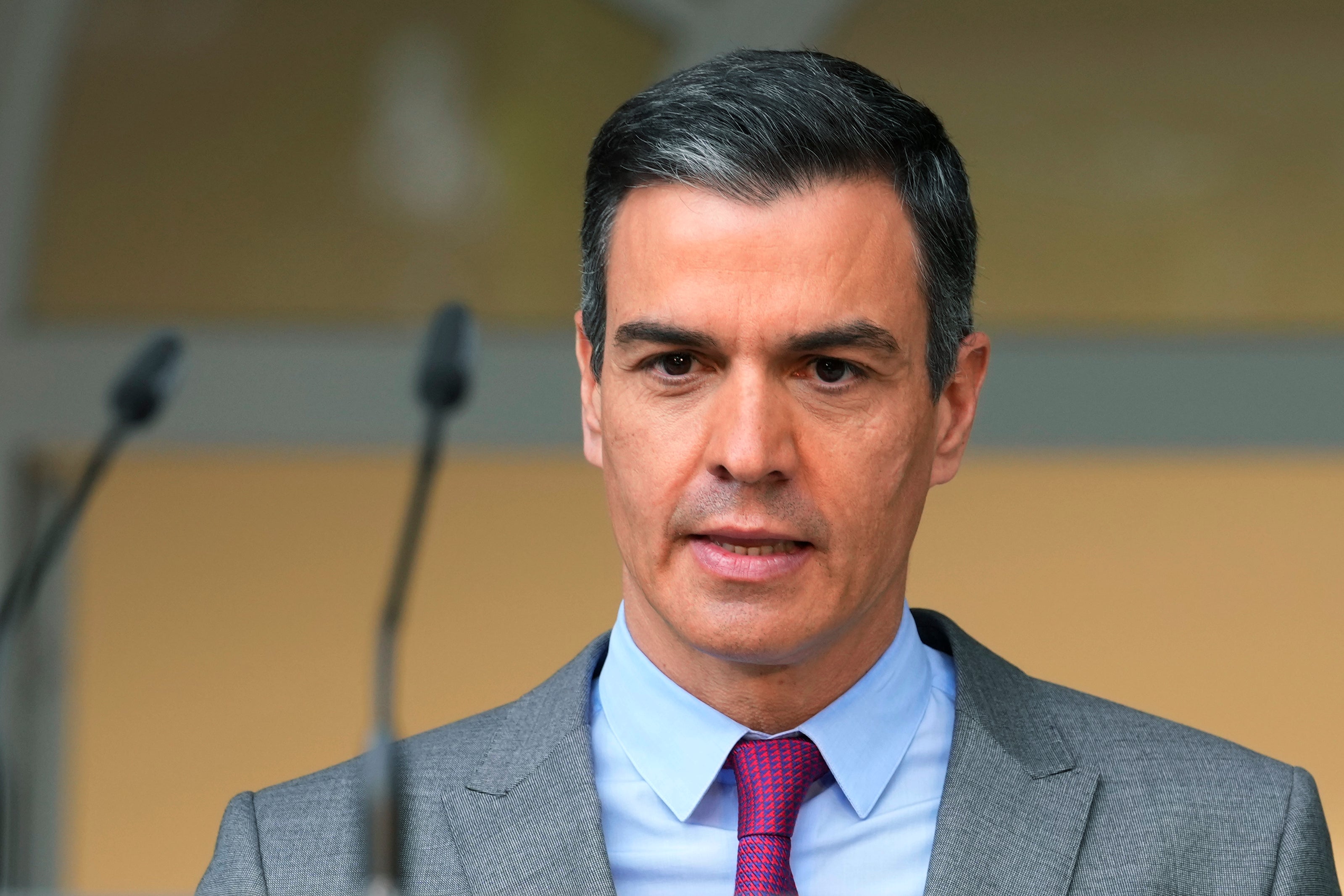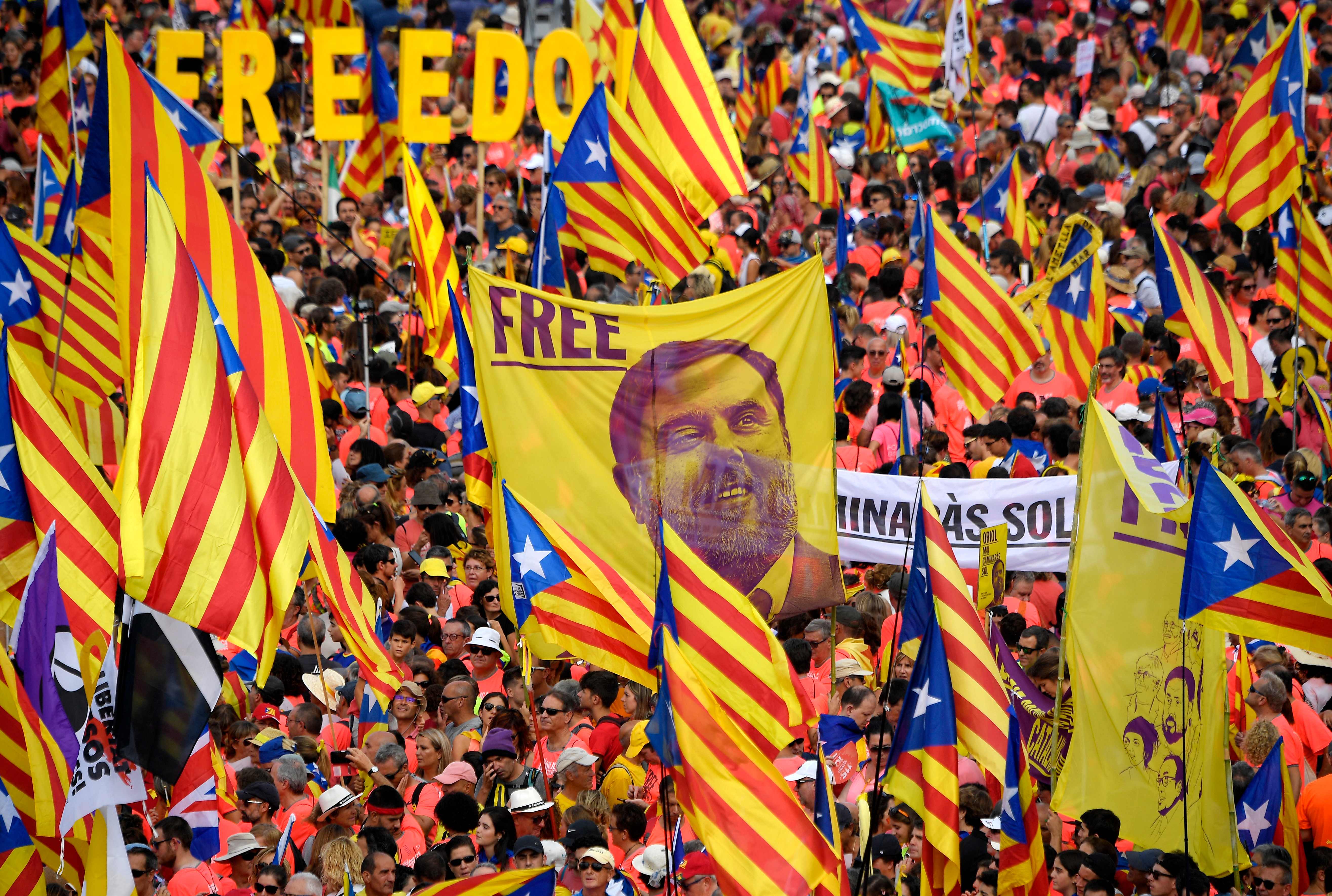Spain approves controversial pardons for Catalan separatists
The PM hopes the pardons will diffuse political tensions but most Spaniards oppose the move

Nine Catalan separatist leaders who were jailed for their roles in a failed independence bid in the region in 2017 are expected to leave prison after Spain granted them controversial partial pardons.
“The government has taken this decision because it is the best decision for Catalonia and the best decision for Spain,” said Spanish prime minister Pedro Sanchez in a live television address to the nation.
“We hope to open a new era of dialogue and build new bridges.”
The politicians and activists were jailed in 2019 for between nine and 13 years for crimes of sedition and misuse of public funds.
All were convicted for their roles in staging a referendum on independence which Spain’s Constitutional Court declared illegal, as well as a short-lived declaration of independence days later.
The pardons are partial which means the nine will be freed from prison but cannot hold public office and will be returned to jail if they try to form another breakaway state at the heart of Europe or break the law in any way.
Mr Sanchez hopes that granting the pardons will diffuse tensions between Madrid and the pro-independence regional government in Catalonia and open the way to dialogue to resolve Spain’s territorial crisis.
“These pardons do not depend on their recipients renouncing their ideas and nor do we expect them to do so,” he said.
“But these people were never put in prison for the ideas they hold but rather for having violated the laws of our democracy.”
The pardons do not cover the former Catalan president Carles Puigdemont and other leading separatists who fled Spain following the unsuccessful breakaway attempt.
A series of recent polls have shown the majority of Spaniards oppose pardoning the leaders of an independence drive which plunged Spain into its worst political crisis since a failed 1981 coup d’etat.
Conservative opposition parties said they will appeal against the pardons in the courts while separatists have said the Spanish government’s gesture does not go far enough and have demanded a Scottish-style agreed referendum.

The Catalan regional president, Pere Aragones, said by pardoning the jailed separatists, the government admitted their prosecution was unjust but many others were still facing prosecution.
“It is time for amnesty and for self-determination. It is time for a referendum on independence,” Mr Aragones said.
Raul Romeva, the former Catalan head of foreign affairs who was jailed for 12 years, tweeted: “By pardoning nine people, they will not hide the repression they continue exercising against hundreds of separatists. We won’t give up the fight: amnesty and self-determination!”
Spain’s left-wing coalition government has ruled out a vote on independence.
Analysts have said setting the convicted separatists free was a daring gamble by Mr Sanchez which could cost him politically in the short term but should pay off in the long run.
Lluis Orriols, a professor of political science at the Carlos III University in Madrid, contended that while Socialist voters who opposed the pardons may desert the party at the next election in 2023, it would ensure the support of the moderate Catalan Republican Left party, which runs the region’s government.
“By the time we reach the next election, voters may be more worried about the economic recovery,” he told The Independent.
Join our commenting forum
Join thought-provoking conversations, follow other Independent readers and see their replies
Comments
Bookmark popover
Removed from bookmarks